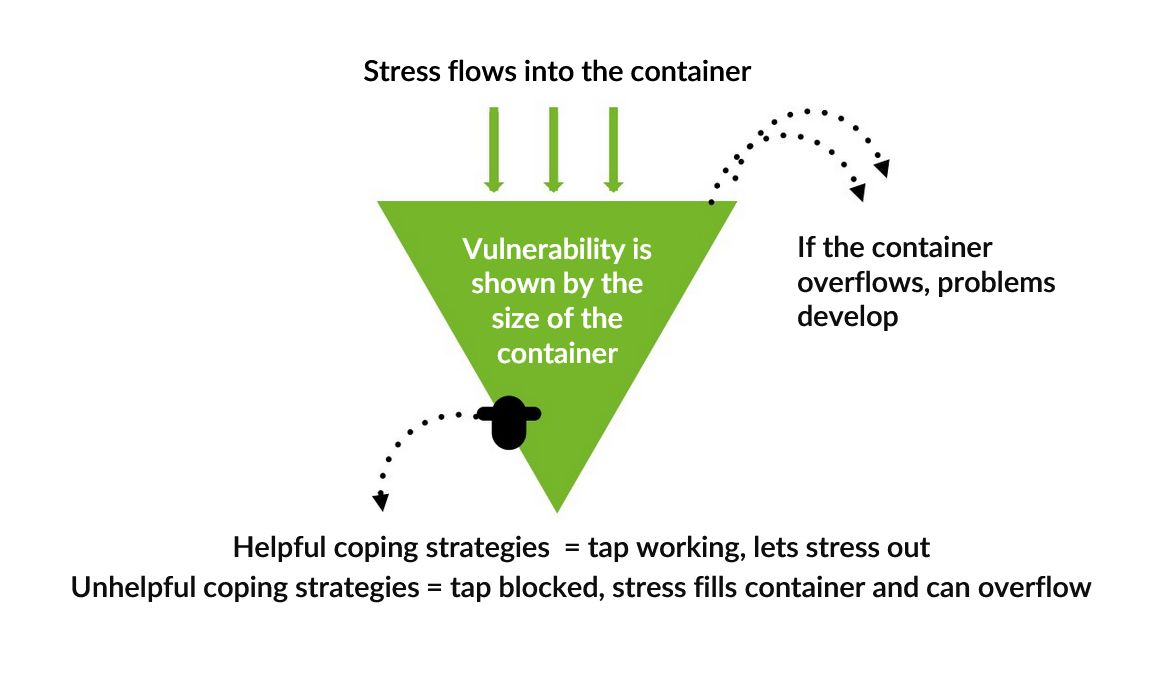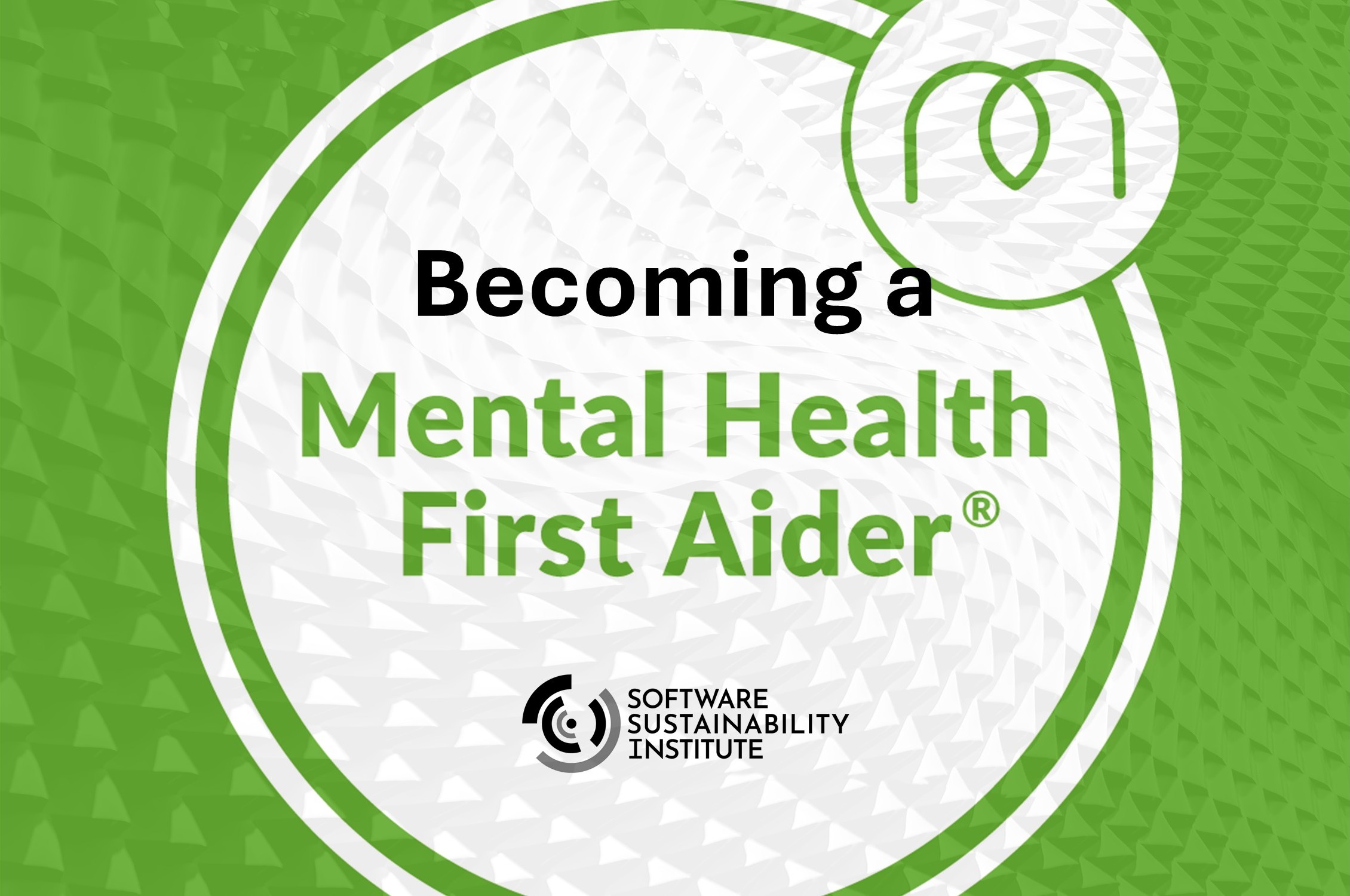Trigger warning - this post discusses mental health crises, including mentions of anxiety attacks and suicide.
As part of my SSI Fellowship, I’m continuing the conversation around mental health in our community. This is an important subject, one that I care deeply about and one with which I, unfortunately, have quite a lot of experience. But it’s also something that I knew had to be handled carefully. So, I used some of my Fellowship funding to attend Mental Health First Aider training.
But what is a Mental Health First Aider? What did I learn from the training? And would I recommend it?
What is a Mental Health First Aider?
As the name suggests, a Mental Health First Aider (MHFAider) is trained to deal with mental health emergencies. Like a regular first aider, our job is to assess problems and do what we can to help, but mainly to pick the person up and pass them on to qualified professionals for further support. I am not a therapist, and I’m not meant to give advice, especially in a crisis. But I can try to calm someone down if they are having an anxiety attack, for example. Failing that, I can refer them to emergency services, whether it's the Samaritans or an ambulance.
But the role goes beyond supporting someone in a crisis. MHFAiders are trained to recognise warning signs, encourage people to seek help, provide confidential support and signpost additional resources. We are also expected to be advocates for better mental health in the workplace.
The Training
The training cost £390 and took place over two days. There are regular in-person courses held by various organisations nationwide, but the one I attended was online.
Ivy, our trainer, guided us through what an MHFAider is, then discussed a range of mental health problems and taught us how to approach people and provide support in different situations. Several times, we were split into groups to discuss and report back on some case studies and statistics. Finally, we were introduced to some tips for self-care, which is essential, as we can’t help others if we don’t look after ourselves.
Some sessions were quite intense, and I found some conversations particularly challenging when they were about issues that have affected me or my family and friends. But the tricky topics were handled well, and I feel like I learned a lot.
Key Takeaways
My main takeaway from the training is that I now feel more confident talking (and listening!) to people about mental health. However, there were also a few things that stood out that I wanted to share with you.
The Cost of Absence
In the talk that I’m giving as part of the Fellowship, I talk about having to take time off work after an anxiety attack and the cost of that absence to my employer. I do this to illustrate that investing in your team’s wellbeing can actually save money (as well, you know, being the right thing to do!).
The course included statistics about the cost on a national scale. Absence due to mental health issues causes 72 million working days to be lost each year, costing UK employers an estimated £45 billion! This helped me realise the scale of the problem and emphasised how important it is to ensure people have access to proper support.
Other statistics
Some other statistics were, sadly, less surprising.
- People who identify as LGBTQ+ are more likely to report mental health issues than heterosexual people.
- A higher percentage of black people experience mental health issues than white people.
- Disabled people report a higher percentage of issues compared to non-disabled people.
- Women are more likely to experience suicidal thoughts, while deaths by suicide are three times higher amongst men.
As I said, not really surprising, particularly given everything happening in the world right now! But it shows that mental health problems can affect us all. And that we will need a range of solutions to ensure everyone gets the support they need.
Stress Containers
We were also shown a useful visualisation about stress management, known as a ‘Stress Container’. I’ve included the illustration below.

An illustration of a Stress Container. Arrows show stress flowing into the container. A tap shows how helpful coping strategies can let the stress out. The illustration shows that problems occur when the container overflows.
The container is constantly filling with stress from a variety of sources. Unfortunately, a lot of it is out of our control, and neither you nor I can make it go away! The key is to turn the tap to release the pressure; we need healthy coping strategies to manage our stress levels. If we don’t, the container overflows, and that’s when problems occur.
That was a good metaphor that I hadn’t encountered before, and I think it shows the importance of self-care. It also makes it easy to understand our differences. Everyone’s container is a different size and shape, and we each need to find different coping mechanisms that work for us.
Final Thoughts
So, would I recommend becoming an MHFAider? Well, we definitely need more people advocating for better mental health in the workplace. I believe that most teams could benefit from having at least one MHFAider, as they can spot issues and prevent them from becoming bigger problems, improve the team's well-being and productivity, and save money in the long run.
As an individual, well, it can be a challenging and intense course at times, and it might not be for everyone. But I learned a lot, not just about how to support others, but also how to look after myself. I think it was worth doing, and I’m very grateful to the SSI for giving me the opportunity to do it.
If you want to know more about MHFAiders, check out one of the following organisations: MHFA England, Scottish MHFA, MHFA Wales or AMH in Northern Ireland.


